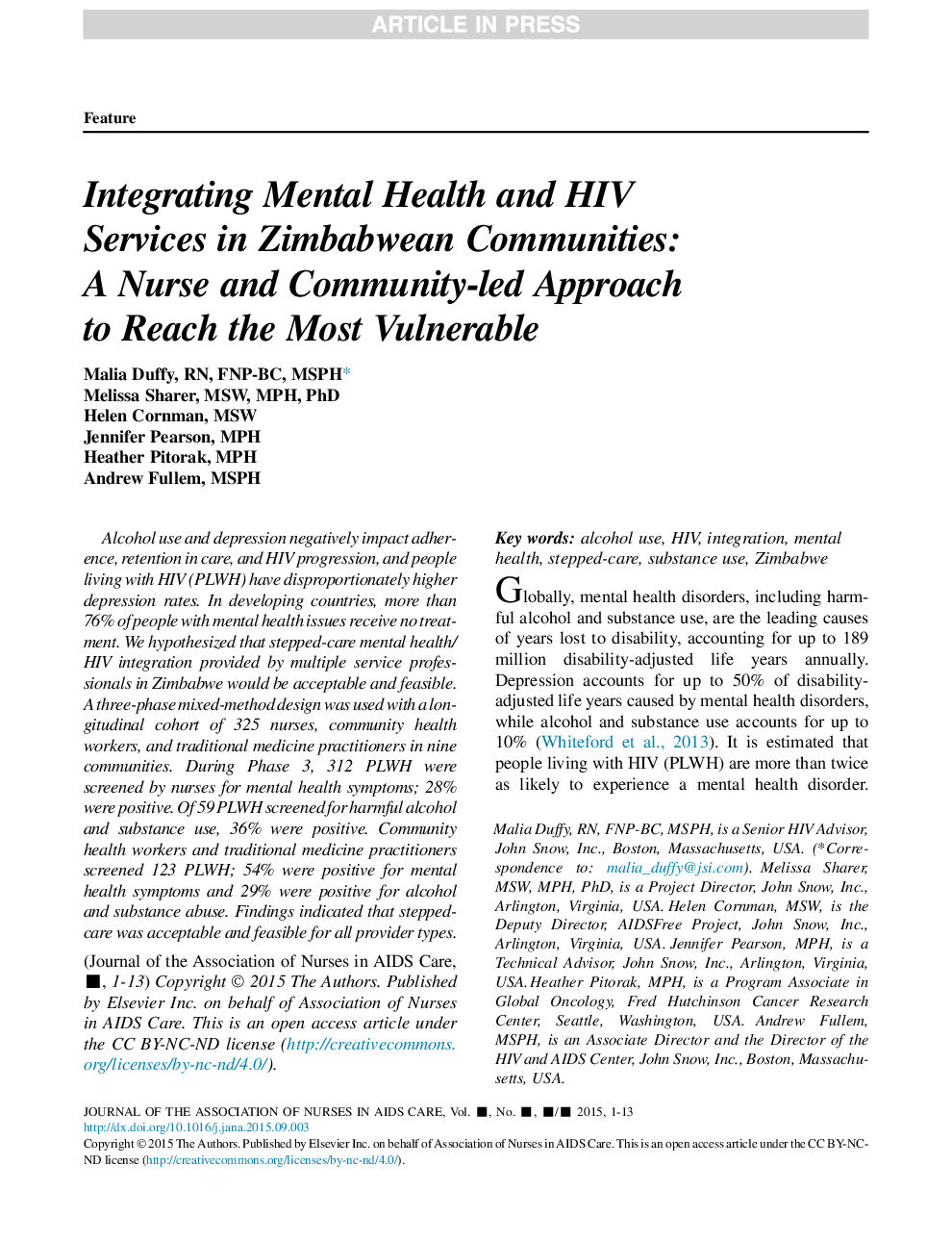| Article ID | Journal | Published Year | Pages | File Type |
|---|---|---|---|---|
| 5569221 | Journal of the Association of Nurses in AIDS Care | 2017 | 13 Pages |
Abstract
Alcohol use and depression negatively impact adherence, retention in care, and HIV progression, and people living with HIV (PLWH) have disproportionately higher depression rates. In developing countries, more than 76% of people with mental health issues receive no treatment. We hypothesized that stepped-care mental health/HIV integration provided by multiple service professionals in Zimbabwe would be acceptable and feasible. A three-phase mixed-method design was used with a longitudinal cohort of 325 nurses, community health workers, and traditional medicine practitioners in nine communities. During Phase 3, 312 PLWH were screened by nurses for mental health symptoms; 28% were positive. Of 59 PLWH screened for harmful alcohol and substance use, 36% were positive. Community health workers and traditional medicine practitioners screened 123 PLWH; 54% were positive for mental health symptoms and 29% were positive for alcohol and substance abuse. Findings indicated that stepped-care was acceptable and feasible for all provider types.
Related Topics
Health Sciences
Medicine and Dentistry
Infectious Diseases
Authors
Malia RN, FNP-BC, MSPH, Melissa MSW, MPH, PhD, Helen MSW, Jennifer MPH, Heather MPH, Andrew MSPH,
